(August 11, 2024) I’m meeting celebrated food icons from Australia, chefs Gary Mehigan and George Calombaris along with food critic Matt Preston, the day after the Indian hockey team beat Australia for the first time in 52 years at the Paris Olympics! But given the mood in the star hotel where the legendary trio are holding court shows that not all Aussies have lost.
Sharing their stories, gently ribbing each other, and sharing generous nuggets from their stellar careers, the OG food connoisseurs know a thing or two about enthralling audiences. In a world where food is both an art form and a cultural bridge, few have explored its depths as thoroughly as the talented trio.
These culinary luminaries have not only transformed the way we view food through their time on MasterChef Australia but have also embarked on personal journeys that deepen their appreciation for global cuisines, particularly the rich and diverse flavors of India. What makes them special is their deep understanding of local food – they talk knowledgeably about everything food, from local millets, the best haunts for biryani in Hyderabad to the growing fascinating for mandi in India!
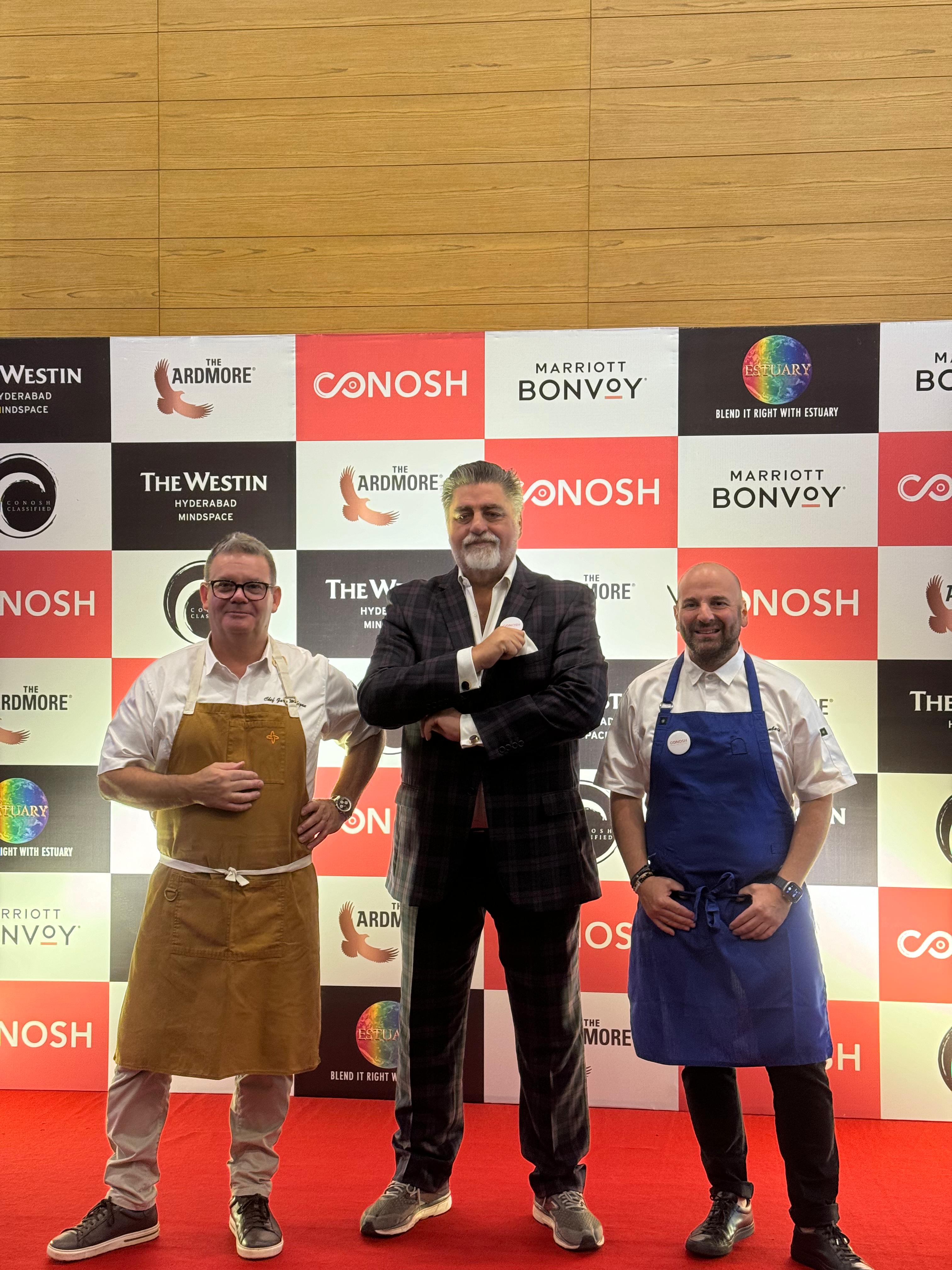
Masterchef Australia’s OG judges, Gary Mehigan, Matt Preston and George Calombaris on their Conosh India tour
Global Indian catches up with the three masters in Hyderabad during their Conosh India tour, as they do what they do best – bringing in flavors, ingredients and dishes from across the world to create a truly global dining experience.
Early influences and culinary beginnings
For Gary Mehigan, the journey began at home. “My grandfather was a chef, but as a young boy, I didn’t know that. I just thought he cooked nice food,” he recalls. Fast food was never on the table with home-cooked meals being a staple, with his mother making everything from pastries to chips in an old fryer. These experiences laid the foundation for his palate and love for food.
Similarly, George Calombaris grew up with a deep connection to home-cooked meals. His culinary journey started with family gatherings and occasional visits to a local Chinese restaurant. “Those visits were special. I remember the prawn crackers and my dad’s excitement over sweet and sour dishes,” George reminisces.
Matt Preston’s culinary roots were firmly planted in his family’s kitchen and garden. “I still remember the fresh smell of tomatoes in the greenhouses! My father was an adventurer who experimented with different cuisines and flavors. So I grew up with a proper love of spices and dishes like Vindaloo.”
Discovering Indian cuisine
The trio’s exploration of Indian cuisine showcases their commitment to understanding and celebrating diverse food cultures. George’s connection to Indian cuisine runs deep, with his great-grandfather being born in India. However, it was their first visit to India in 2012 that truly opened their eyes to the country’s culinary diversity. “Before that trip, my idea of Indian food was limited to butter chicken and naan,” George admits. “Traveling through India and experiencing the regional cuisines was a revelation.”

The Masterchef Australia crew
Matt finds the historical and cultural influences on Indian food fascinating. “Indian cuisine has been shaped by various cultures, including Greek, which adds layers of complexity and richness,” he explains. His travels to India have unveiled the intricate tapestry of flavors and histories that define Indian culinary traditions.
Gary echoes this sentiment, noting that their visits to India have been transformative. “The variety of Indian cuisine is astounding. Each region has its own distinct identity, and it’s a learning journey every time we visit,” he says.
Impact of Masterchef Australia
Their time on MasterChef Australia was a defining period in their careers, influencing not only their personal growth but also the global perception of food. “It was 11 years of filming, 16 series, and it changed the perception of food in Australia and India,” Gary reflects. The show celebrated the melting pot of cultures in Australia, showcasing dishes from around the world and inspiring viewers globally.
Matt emphasizes the importance of the diverse backgrounds of the contestants, which enriched their culinary horizons. “Seeing young cooks from different backgrounds, like Jimmy Seervai, Nidhi, and Sandeep, bringing their heritage to the table was amazing,” he says. George adds that the pride and excitement of young chefs from various cultures were truly inspiring, highlighting the show’s far-reaching impact.
Internet and modern cuisine
In today’s digital age, the internet and social media play a significant role in shaping culinary trends and perceptions. However, George cautions against the potential homogenization of cuisines. “It’s a double-edged sword. It makes trends more accessible but can also lead to a loss of regional uniqueness if not approached thoughtfully,” he warns. Matt agrees, emphasizing the importance of using the internet to enhance culinary knowledge rather than blindly following trends.
Gary believes that while the internet opens up possibilities, maintaining the integrity of regional cuisines is crucial. “Indian cuisine, for example, is so diverse and complex that it’s unlikely to lose its uniqueness. The enthusiasm of young Indian chefs ensures that traditional flavors are preserved and celebrated,” he notes.
It is the impact of these shows that is visible in the culinary scene today While two decades ago the best Indian chefs were working across the world now they have opportunities within the country. Gary adds, “Chefs like Varun Totlani are working wonders each day!”
Memorable culinary discoveries in India
Each visit to India brings new surprises and discoveries for the trio. Gary shares his experience of tasting forage-based and fermented foods in Nagaland, which were completely new to him. “The fermented mustard greens tasted like Vegemite, and I would happily spread them on toast,” he says. These unexpected flavors and textures make exploring Indian cuisine exciting.
George is continually astonished by the simplicity and vibrancy of dishes made with humble ingredients like lentils. “It’s a lesson in how you can feed many people with something simple yet delicious,” he remarks. Matt highlights the unique sourness and depth of flavor in Gongura, a dish that stood out to him during his travels in India.
View this post on Instagram
The journey continues
As they create culinary experiences in India, the trio are excited about blending their culinary styles with local ingredients. Matt mentions using burrata from a local producer in Mumbai for one of their dishes, highlighting their commitment to collaboration with local artisans. “This collaboration and bringing our own twists to traditional flavors make our events special,” he says.
The dinners they curate are experiences in themselves and a true amalgamation of the local and the global – from fresh handmade burratas served on maple salted pineapples and sashimi tuna with caviar sourced from Yarra valley to an aussie bush scone with whipped feta.
Gary and George emphasize the fun and creativity involved in planning their menus. “We enjoy incorporating local elements and seeing how they enhance our dishes. It’s about celebrating the best of both worlds and creating something memorable,” Gary explains. George adds that their focus is on highlighting the synergy between their culinary experiences and local flavors, making each event unique and exciting.
The culinary journeys of Matt Preston, George Calombaris, and Gary Mehigan are far from over. Whether through their time on MasterChef Australia, their travels in India, or their ongoing culinary adventures, Matt, George, and Gary continue to enrich the global culinary landscape, one dish at a time.
- Follow Gary Mehigan, Matt Preston, and George Calombaris on Instagram.

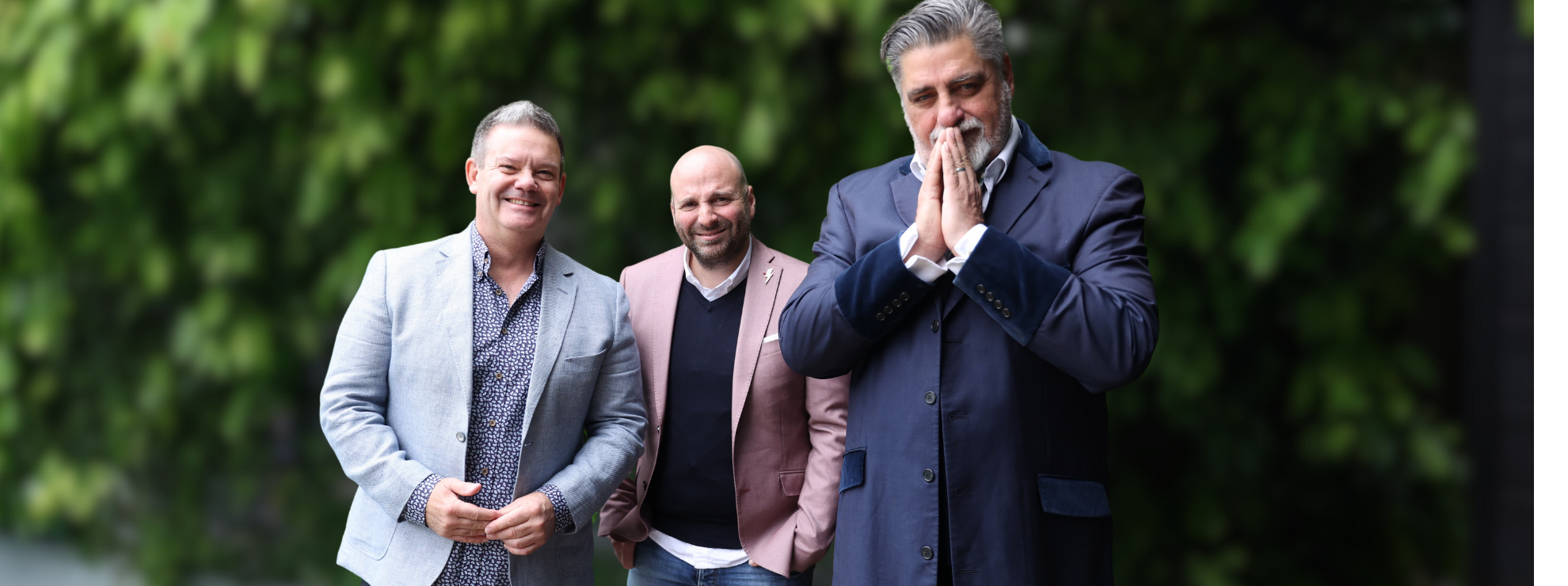

 Failte Solar's panels are installed across Ireland and Europe[/caption]
Failte Solar's panels are installed across Ireland and Europe[/caption]
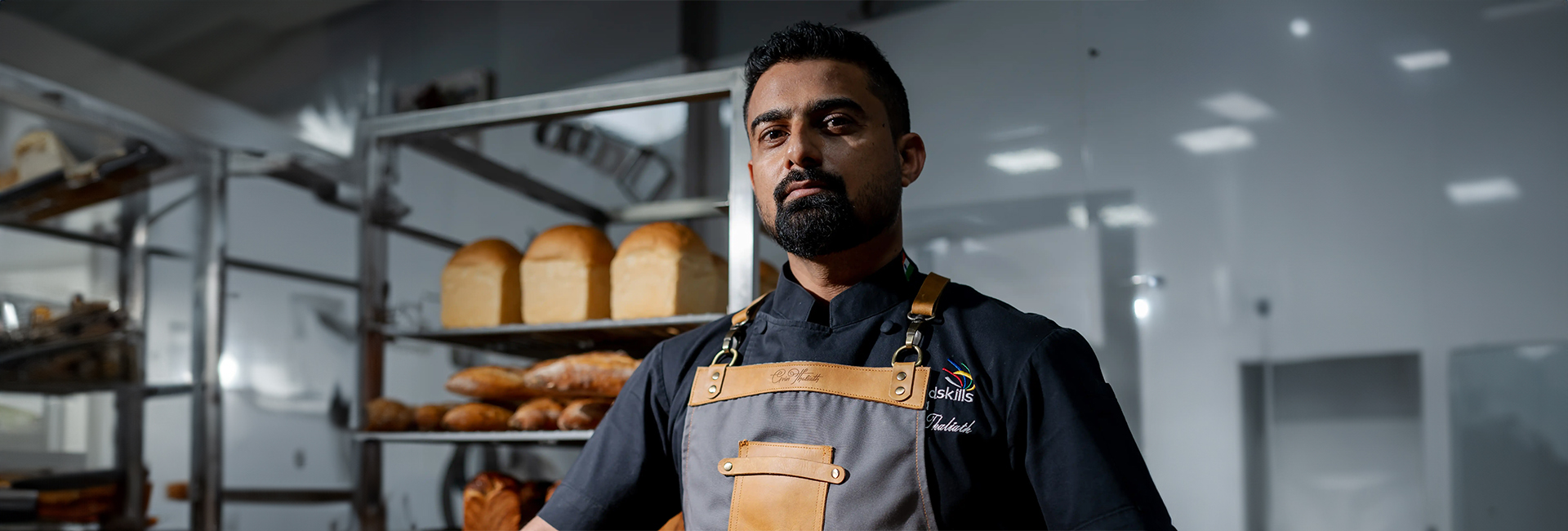
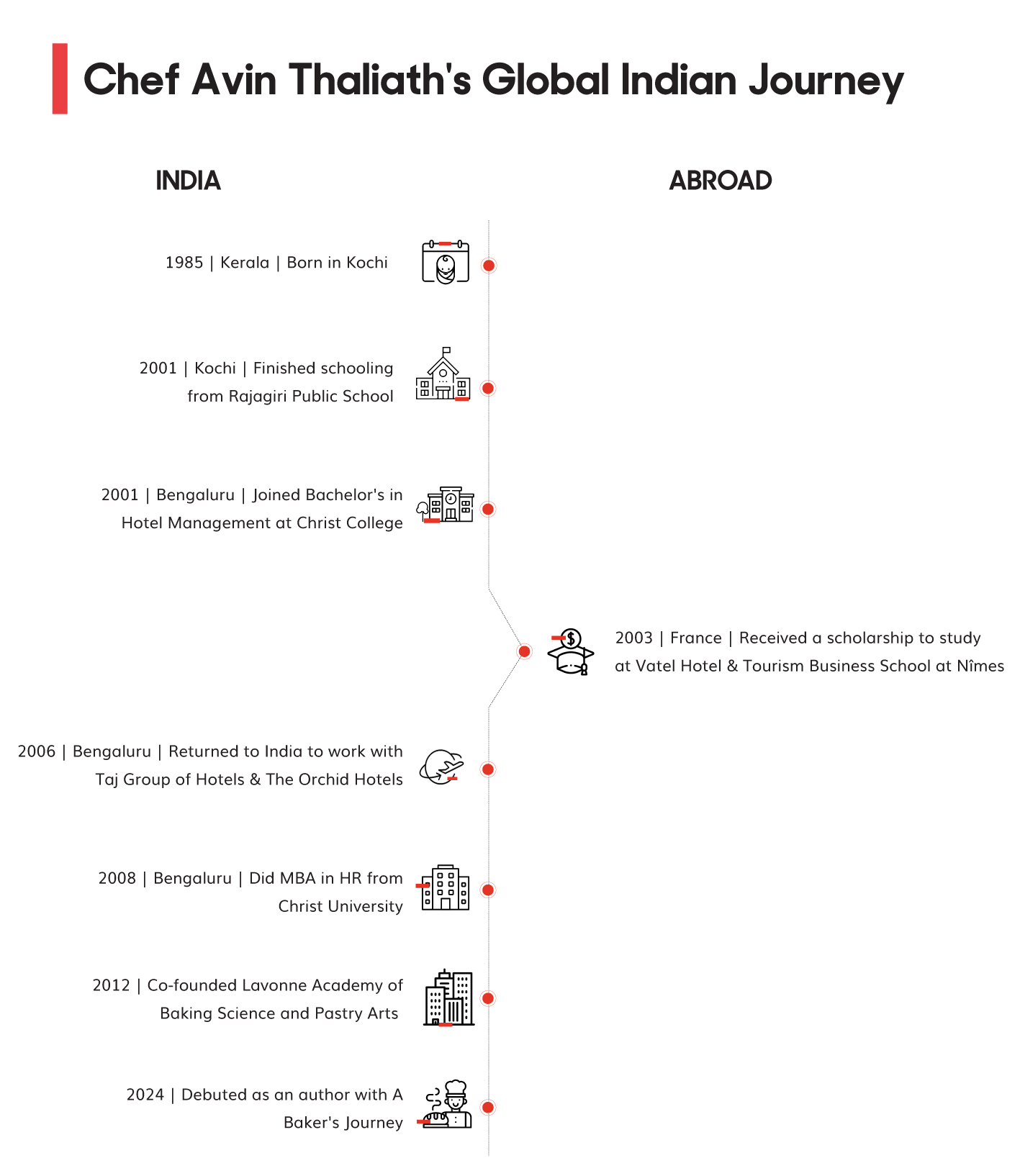

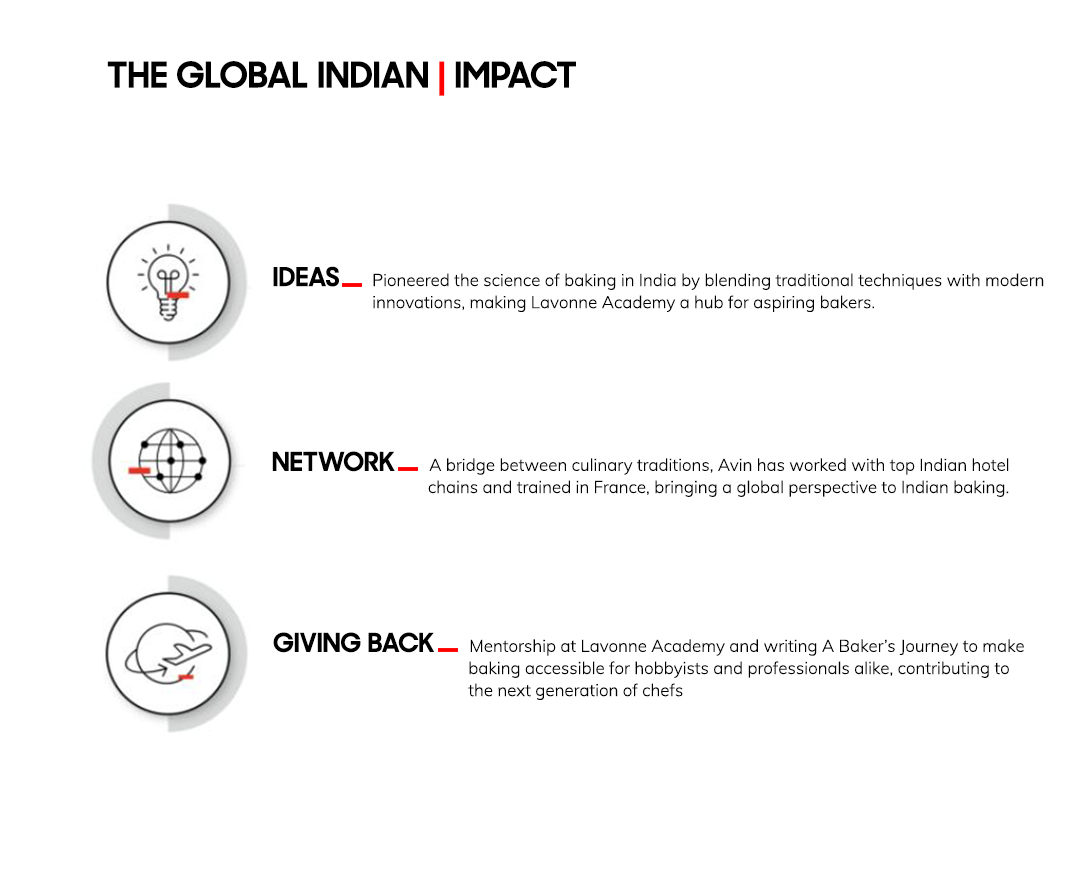

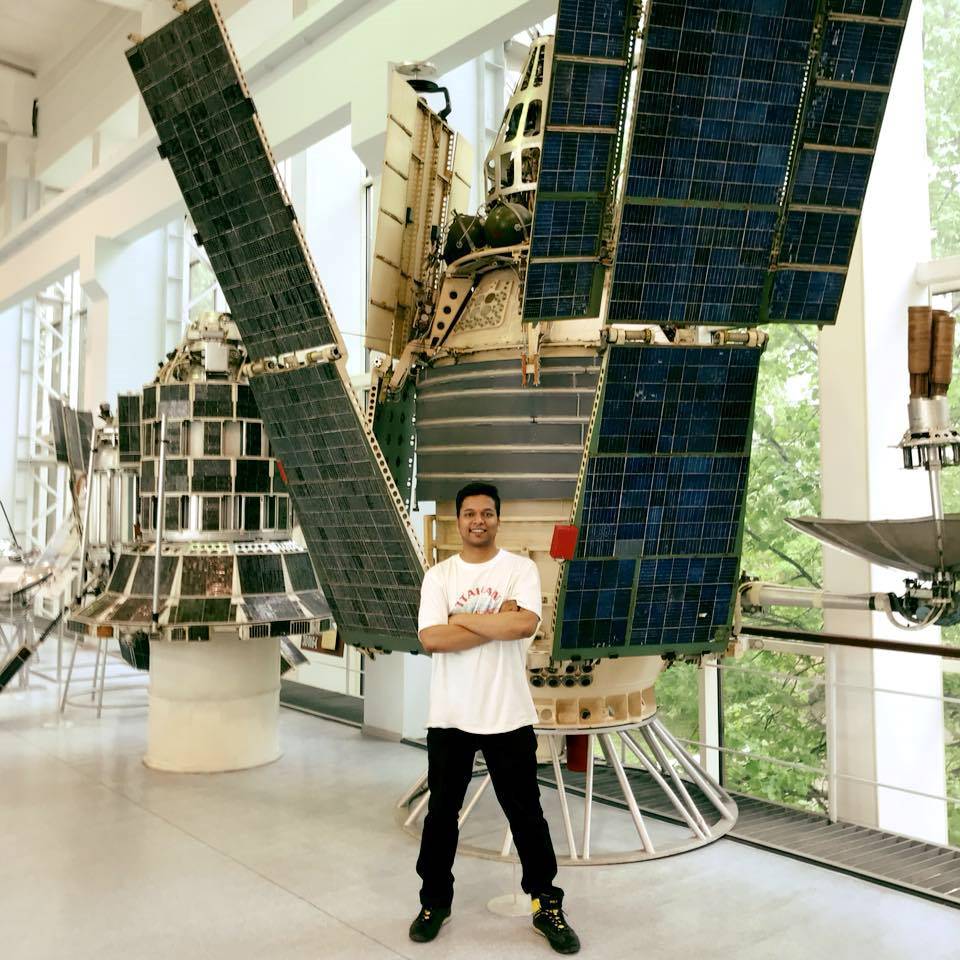 Dr Baraskar at the ROSCOSMOS Facility[/caption]
Dr Baraskar at the ROSCOSMOS Facility[/caption]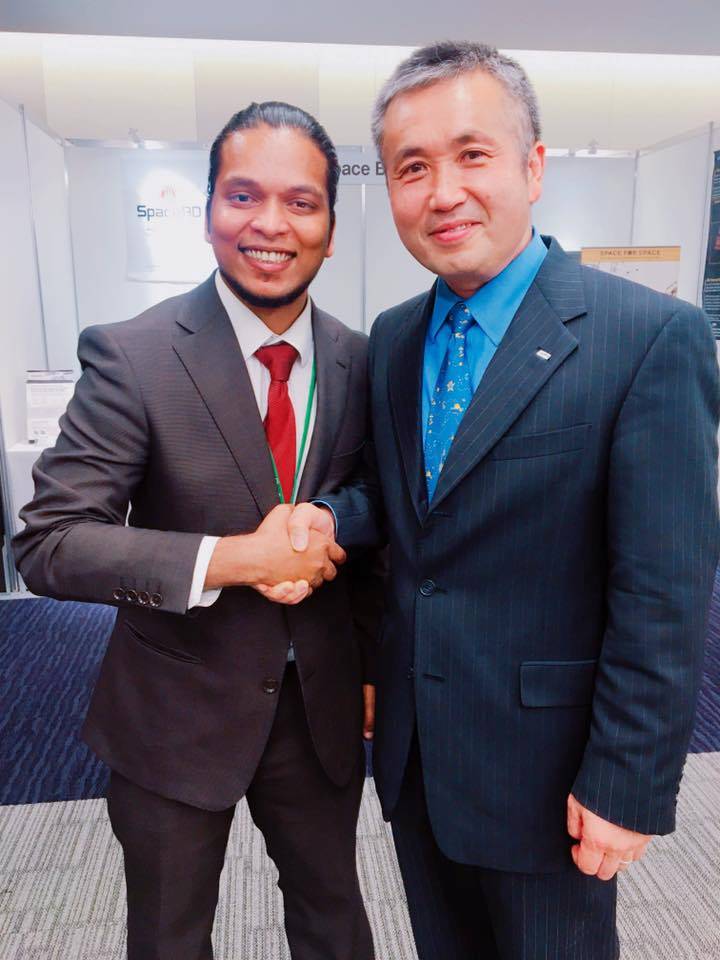 Dr Baraskar with Commander Astronaut Dr. Koichi Wakata[/caption]
Dr Baraskar with Commander Astronaut Dr. Koichi Wakata[/caption]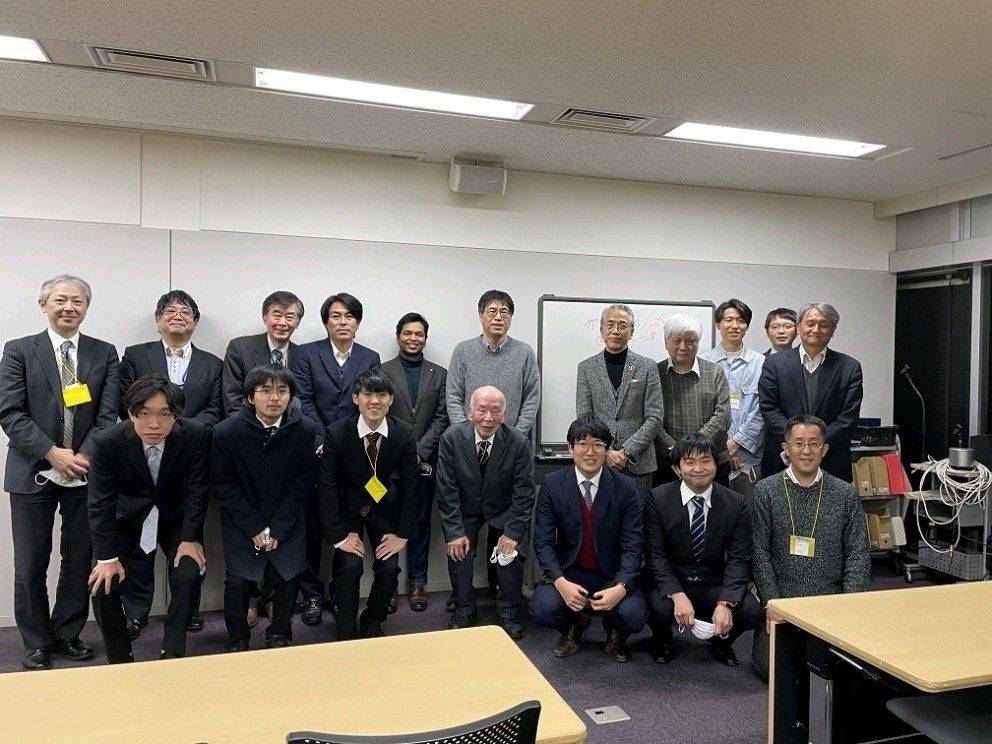 Dr. Baraskar with the Japanese Space Solar Power Society 2021[/caption]
Dr. Baraskar with the Japanese Space Solar Power Society 2021[/caption]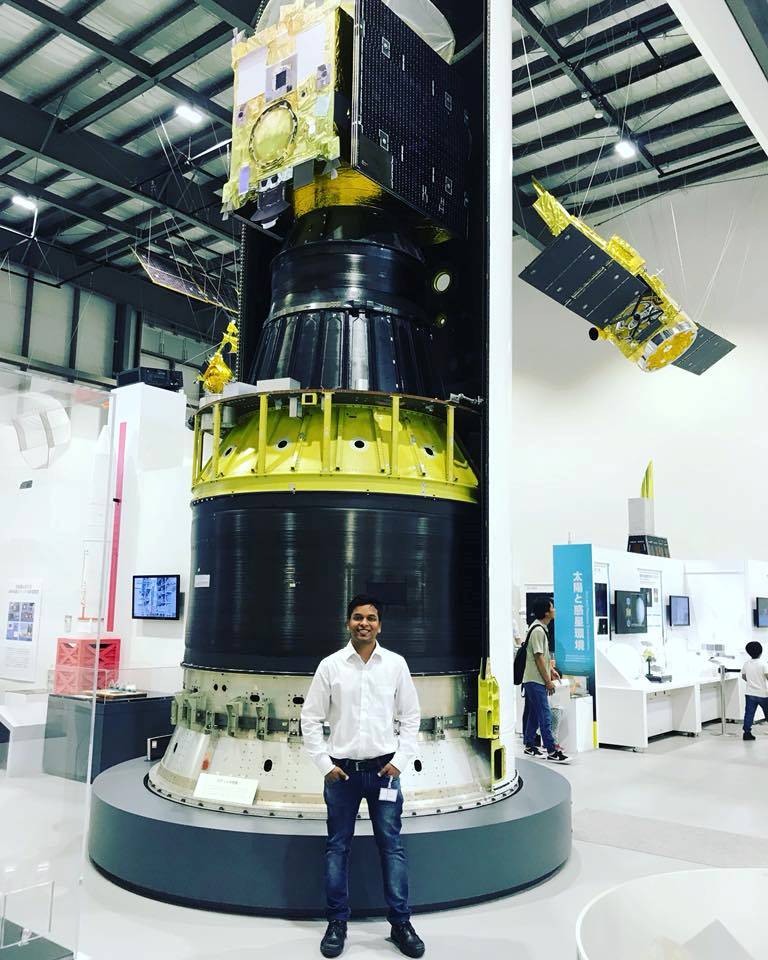 Dr Baraskar with Hayabusa 2, ISAS-JAXA Japan[/caption]
Dr Baraskar with Hayabusa 2, ISAS-JAXA Japan[/caption]

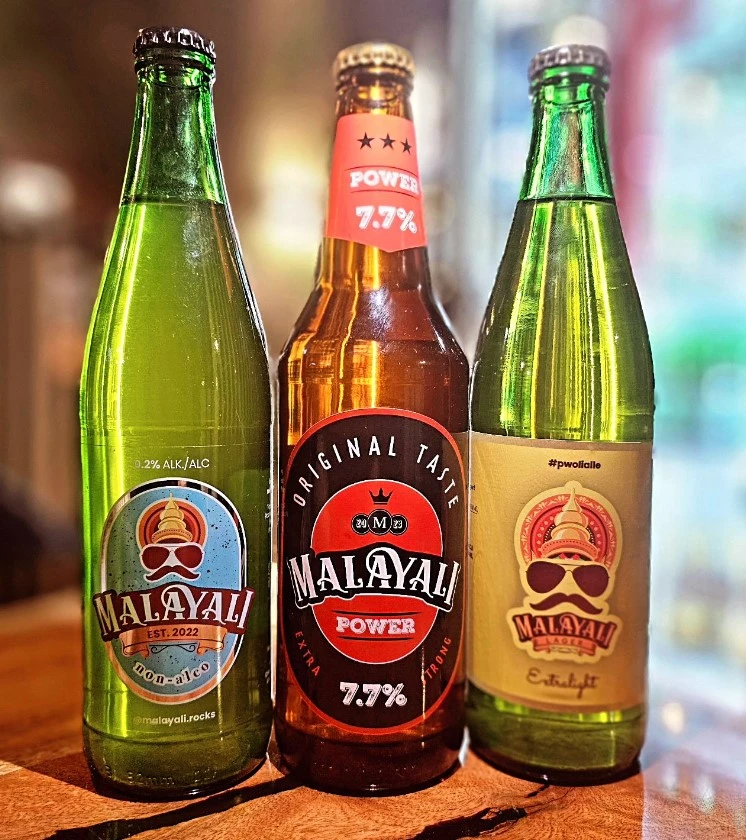
 Malayali lager's logo[/caption]
Malayali lager's logo[/caption]